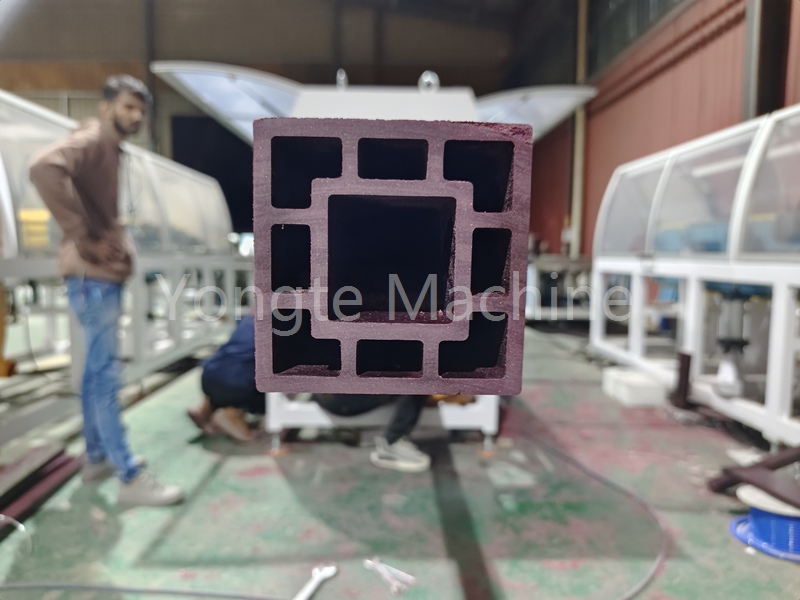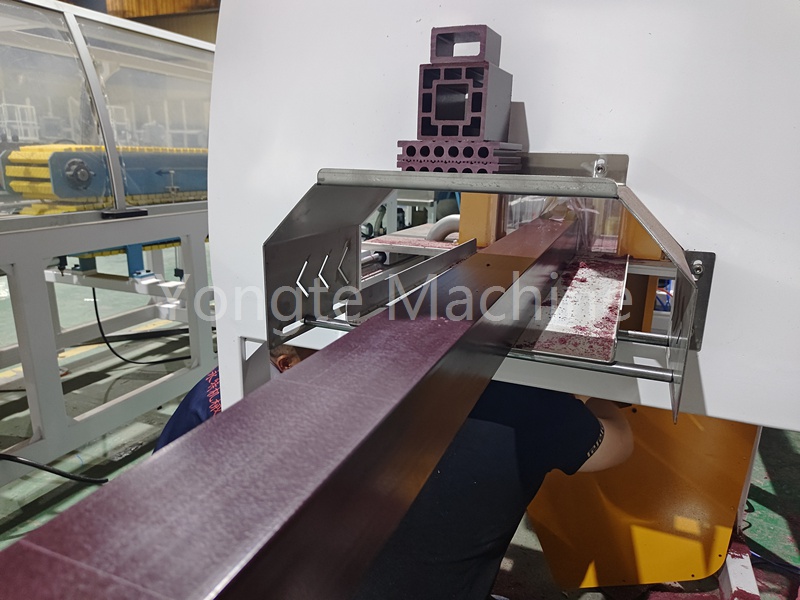Plastic waste in Africa is difficult to dispose of, but Yongte's wood-plastic column production line offers a breakthrough.
The African continent is mired in a plastic pollution crisis—over 20 million tons of plastic waste are generated annually, yet less than 10% is effectively recycled. This waste not only occupies approximately 15% of arable land, causing grain yields to drop by up to 30% in some areas, but also continues to flow into major river basins like the Nile and Congo Rivers, causing microplastic concentrations in water bodies to exceed legal limits by more than three times, posing a dual threat to ecosystems and human health.
Facing this daunting challenge, Yongte Plastic Machinery's wood-plastic column production line has demonstrated unique capabilities. The core value of this solution lies in its dual benefits of "pollution control and revenue generation": By scientifically combining Africa's accumulated waste plastic with abundant wood fiber from palm trees, acacia trees, and other sources, it achieves large-scale, resource-based utilization of waste plastic. A standard production line can process 800-1,200 tons of waste plastic annually, reducing landfill by approximately 5,000 cubic meters and addressing the plastic accumulation problem at the source.

In terms of environmental performance, the production line's green design throughout its entire lifecycle is impressive. The production process produces no toxic waste gases, and energy consumption is 30% lower than traditional equipment. Furthermore, the product is fully recyclable at the end of its lifespan, creating a closed-loop "plastic-product-recycled plastic" cycle that completely eliminates secondary pollution.
Yongte's WPC columns offer even more compelling advantages in the market. They retain the natural texture of wood while offering the durability of plastic, with excellent corrosion resistance, waterproofing, and insect repellency. They boast a service life of 15-20 years, three times that of ordinary wooden columns, yet are 20% cheaper. Currently, demand for this material continues to rise in Africa's construction, landscaping, and municipal engineering sectors. Order data from South Africa and Nigeria shows a steady 5% monthly increase in WPC purchases, making them a new profit driver for local companies.
Of particular note, the production line's design fully considers local African conditions. It is easy to operate and requires minimal worker skills. Each production line creates 30-50 stable jobs, effectively promoting community engagement and improving livelihoods.

To address the technical challenges posed by the complex variety of plastics across Africa, Yongte's production line features an intelligent control system that automatically adjusts raw material ratios, ensuring a consistent product yield of over 98%. This successfully addresses the challenges of diverse waste plastics and their difficult recycling. Yongte has already established partnerships with building materials companies in Kenya, Ghana, and other countries, and plans to establish a localized service team in Africa to provide ongoing equipment maintenance and technical training support, ensuring the long-term stability of the production system.
Industry experts comment that Yongte's wood-plastic column production line not only provides a replicable and scalable solution to plastic pollution but also injects momentum into Africa's green development through its innovative model of "environmentally friendly products + employment + industrial upgrading." This collaborative approach of "promoting development through pollution control" is opening up new possibilities for China-Africa environmental industry collaboration.